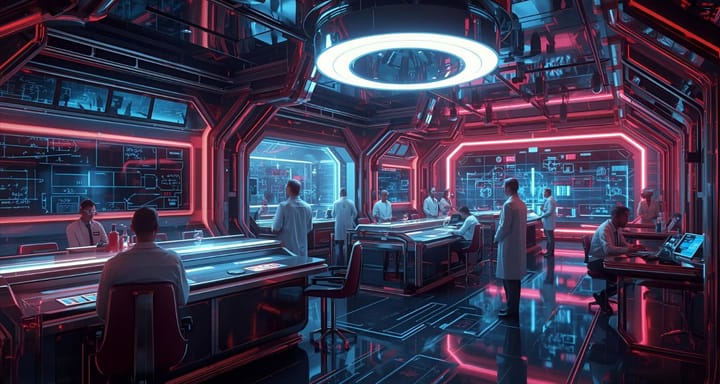Unlocking the Future: How AI is Revolutionizing Drug Discovery
As AI continues to push the boundaries of what’s possible, one thing is clear: the future of medicine is being written by machines, and the story has only just begun.

The world of drug discovery is undergoing a seismic shift, and AI is at the helm. With machine learning algorithms capable of analyzing trillions of molecular possibilities, AI is transforming the pharmaceutical industry by cutting costs, accelerating timelines, and unlocking new possibilities for treatment.
What Is AI Drug Discovery?
At its core, AI drug discovery leverages machine learning to design and optimize molecules that can be used as medications. This involves analyzing patterns in protein structures—an overwhelming task when you consider the sheer number of possible configurations. AI streamlines this process by narrowing down the most promising candidates, allowing researchers to prioritize molecules that are both effective and non-toxic.
The Challenges of Traditional Drug Development
Developing a new drug is an arduous and expensive process. Take antibiotics as an example: it can take up to 15 years and cost over $1 billion to bring a single medication to market. This lengthy timeline is a significant barrier to innovation, especially in addressing urgent healthcare needs.
AI is poised to disrupt this status quo. By analyzing vast datasets, predicting outcomes, and automating aspects of the research process, AI can slash both the time and cost of drug development by as much as 50%.
Real-World Impact: The Numbers Don’t Lie
- Investment Boom: Roche has invested over $3 billion to integrate AI into its drug development processes.
- Clinical Advancements: Over the past decade, AI-driven companies have advanced 75 drug candidates to clinical trials.
- Market Potential: According to McKinsey, AI could boost global revenue in the pharmaceuticals and medical products market by 3-5%, translating to nearly $110 billion in additional revenue.
A Glimpse Into the Future
The potential for AI in pharmaceuticals goes far beyond drug discovery. AI is already being used throughout all stages of development, including:
- Preliminary Screening: Analyzing cellular images to identify promising leads.
- Personalized Medicine: Mapping patient medical histories to tailor treatments.
- Experimentation Efficiency: Increasing the speed and accuracy of lab experiments.
- Production Scaling: Optimizing production processes to reduce waste and boost output.
PwC predicts that pharmaceutical companies leveraging AI could double their operating profits by 2030.
Top AI Companies in Drug Discovery
A wave of startups is shaping the pharmaceutical AI landscape:
- Genesis Therapeutics - Specializes in using artificial intelligence for drug discovery, has received an equity investment from NVIDIA’s NVentures.
- DeepCure - A spin-out from MIT, aims to revolutionize small molecule therapeutics discovery using artificial intelligence (AI) and automated chemistry, addressing challenging targets in the pharmaceutical industry.
- Enveda - Revolutionizing drug discovery by leveraging AI to harness nature's chemical biodiversity.
- Aqemia - Combines deep-tech and biotechnology to tackle challenging diseases. The company collaborates with pharmaceutical giants and advances its internal drug pipelines using a cutting-edge AI-powered molecular modeling approach.The Bigger Picture
What’s Next?
AI drug discovery is just one piece of the booming health tech puzzle, and investors are diving in headfirst.
As AI continues to push the boundaries of what’s possible, one thing is clear: the future of medicine is being written by machines, and the story has only just begun.
Discover how enterprises are leveraging AI to transform industries.
Stay ahead with real-time market adoption insights—subscribe today



